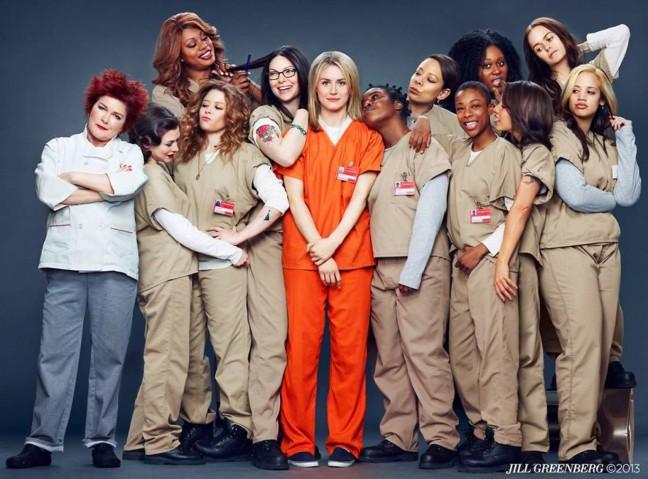A movie’s ending is not always its most important part. This is true not just in a clich?, journey-not-the-destination sort of way, but also in the way movies are consumed and the way they’re remembered. For every final scene that elevates a movie to jaw-dropping status – “Se7en,” say, or “The Usual Suspects,” – there’s another scene just as fondly remembered that falls in a different place: The opening scene of “Drive,” for instance, or that part of “The Matrix” where you can see the air being displaced by bullets whizzing by a half-supine Neo in impossibly slow motion.
Both “Kill List” (which played at the Wisconsin Film Festival) and “The Vow” (out on DVD this week) end how you would expect, if you know what you’re supposed to be expecting. Both feint at inverting genre traditions, but both fall comfortably in step by their final acts. But the problem with all movies is that their ultimate goal is often self-defeating: If a screenplay can get viewers to invest in its characters enough to truly care what happens to them, any sort of ending – even if the underdog wins, or the soulmates end up together, or the antagonist gets what’s coming to him – is unsatisfying. The movie ends. You go home, and the characters all return to the big dressing room behind the screen and get ready to act out the exact same series of events for the 7:10 p.m. crowds in every mid-sized suburban AMC.
Actually, that’s more than just a problem with movies. Inasmuch as life is a series of distinct acts, the end of one part leaves lingering questions. Break it down as much as you like, but everything ends. Four years in Madison, three writing for ArtsEtc., a school year working on West Gorham Street, spring semester, the month of May, the last night of production; these things all end, and presumably, when you go home, everyone else disappears while the projectionist goes on break. Well, OK, the metaphor breaks down, but the point remains. If you care about the people around you, endings kinda suck.
Still, another question completely is what happens in a final scene. “Kill List” situates itself as an anti-hero thriller, but turns face in its third act to become a much straighter morality play. In it, Jay (Neil Maskell, “Piggy”) is a volatile English veteran living an emotionally fraught middle-class life with his wife and son. His occasional source of income, and continuous source of stress, is performing assassinations for a mysterious group. Together with war buddy Gal (Michael Smiley, “Burke and Hare”) Jay accepts a job which spirals into dark territory when they discover that one of their marks had a file on them as well.
A movie like “Kill List” has a choice to make, in terms of the way it ends. Assuming the script doesn’t attempt to blaze a rarely-seen nihilistic trail or leave the audience with a cliffhanger, it’s clear that Jay’s career is a semaphore indicating some measure of moral judgement to be doled out by the film’s end, often dripping from the end of a knife. The tension is not in whether there will be comeuppance – there will – but on whom it will be served. Is Jay’s foul temper and occupation as a hitman enough to doom him, or does his apparent (though demonstrably flawed) love for his family and friend excuse his actions? In the former case, things will be very ugly for Jay. In the latter, it will be very ugly for his enemies. Suffice to say, sans spoiler, it’s extremely memorable.
Much more morally ambiguous is what happens to normal characters with generally benign occupations and inoffensive agendas. Though the stakes are lower, it’s almost easier to be emotionally invested in these types, simply because their stories are relatable. Consider “The Vow,” which follows the story of Leo (Channing Tatum, “21 Jump Street”) whose wife Paige (Rachel McAdams, “Sherlock Holmes: A Game of Shadows”) forgets who he is after a car accident. Neither is particularly flawed, nor totally perfect. Do they deserve to end up together? It’s neither here nor there.
Or better, consider a guy who, four years ago, sent an unrequested application and an unnecessary writing sample – which he still can’t bear to look at, mostly because he would really rather not know what his freshman year self thought of Infinity on High – into his favorite section of his favorite student paper, and was invited to join as a writer, since it’s a volunteer position anyway and the main qualification for entry is enthusiasm.
And somehow, he let an entire semester slip away before slinking into the back row of a meeting and tentatively volunteering for a review of a DVD screener, which inspired him later to create a column comparing two recently released movies on the basis of a singular aspect of their composure, all while trying furiously to prove a working thesis that art, even pop-cultural art, is a hugely useful lens through which to understand major parts of life. Does that guy deserve, in the end, to help run that section in a newsroom with some of the smartest and most talented people he’s met on campus?
Of course not. There’s no “deserve” in it. But that’s the thing about endings: Whether they’re fate or dumb luck, they always, inescapably, inevitably happen. So even when they don’t make sense, you might as well make them memorable.









